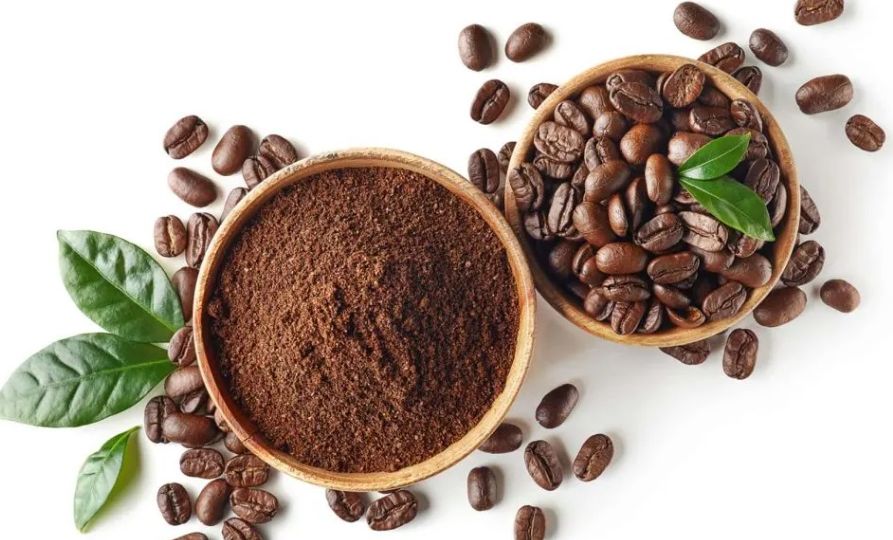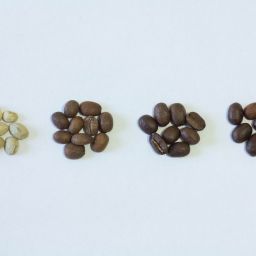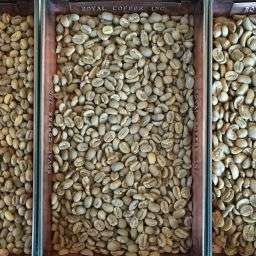
The question of whether whole coffee beans are cheaper than ground coffee is a nuanced one, intricately tied to long-term cost implications, quality of brew, and personal preferences in coffee consumption.
At the heart of this debate is a comparison that goes beyond the initial price per pound, considering factors like freshness, flavor preservation, equipment needs, and the overall coffee experience.
Understanding Whole Coffee Beans
Whole coffee beans are renowned for their freshness and flavor profile. When beans are kept whole until just before brewing, they retain their natural oils and aromatic compounds, leading to a superior cup of coffee.
The ability to grind beans to a specific size allows for customization across different brewing methods, from fine grinds for espresso to coarse grinds for French press.
This level of control over the grind size can significantly impact the coffee’s taste, making whole beans a preferred choice for enthusiasts seeking a high-quality brew.
Read more about Hawaiian Fresh Roast Coffee.
Ground Coffee: Convenience and Accessibility
Pre-ground coffee offers unparalleled convenience and accessibility. It eliminates the need for additional equipment and the time spent grinding, making it an attractive option for those with busy lifestyles or those who value speed in their morning routine.
Ground coffee is typically pre-sized for standard brewing methods, reducing the guesswork and variability in the coffee-making process. This ease of use, combined with the wide availability of ground coffee in various roasts and flavors, makes it a go-to choice for many coffee drinkers.
Initial Purchase Price
The initial purchase price of whole coffee beans versus ground coffee is a critical factor in the broader debate over cost-effectiveness. On average, whole coffee beans may appear more expensive at first glance due to their premium quality and freshness.
However, the price difference is not as straightforward as it seems. Ground coffee, while sometimes cheaper per pound, may not always offer the same value regarding flavor and freshness. The upfront cost of whole beans is offset by their superior quality, which can lead to a more satisfying coffee experience.
Read more about Honey Roast Coffee.
Long-Term Cost Considerations
Long-term cost considerations further complicate the comparison. Whole beans require the purchase of a grinder, an investment that varies significantly in price.
However, this initial expense can be mitigated over time by the potential savings from buying beans in bulk and the extended freshness of whole beans, which reduces waste and the frequency of purchases.
The cost-effectiveness of whole beans improves with regular use, as the expense of the grinder is amortized over many uses, and the per-cup cost decreases.
Equipment and Maintenance
The choice between manual and electric burr grinders impacts both upfront costs and ongoing maintenance. Manual grinders, typically more affordable, offer a cost-effective entry point for grinding beans at home but require more effort to use.
Electric burr grinders, while more expensive, provide convenience and consistency in grind size, leading to a better brew. The investment in a quality grinder is justified by the improved taste of the coffee and the longevity of the device, making it a worthwhile consideration for regular coffee drinkers.
Read more about How Long Does It Take To Roast Coffee.
Shelf Life and Waste
The shelf life of whole beans versus ground coffee significantly influences cost-effectiveness. Whole beans maintain their freshness and flavor for longer periods, making them more economical over time as they reduce the likelihood of waste.
Ground coffee, on the other hand, stales more quickly after opening, leading to a diminished flavor and potentially more frequent purchases if the coffee is not consumed rapidly.
The extended shelf life of whole beans, therefore, contributes to their overall cost-effectiveness, as it ensures that less coffee is thrown away due to staleness.
This in-depth analysis reveals that while whole coffee beans might have a higher initial purchase price, their long-term cost-effectiveness is influenced by factors like equipment needs, the potential for bulk purchases, and their extended shelf life.
These elements combined suggest that whole beans can offer greater value over time, especially for those who prioritize the quality and freshness of their coffee.
Flavor and Freshness
The choice between whole beans and ground coffee significantly affects the taste and aroma of the coffee.
Whole beans are known for their freshness and rich flavor profile, as grinding them just before brewing releases their natural oils and aromatic compounds, offering a superior taste experience. In contrast, ground coffee, which oxidizes and loses its freshness more quickly, can result in a flatter and less vibrant cup of coffee.
The freshness factor of whole beans thus plays a crucial role in enhancing the overall coffee experience.
Read more about How Much Caffeine In French Roast Coffee.
Brewing Methods and Preferences
The versatility of grind sizes available with whole beans allows for optimization across various brewing methods, impacting the coffee’s flavor and quality. Fine grinds are ideal for espresso machines, while coarse grinds best suit French presses.
This flexibility ensures that each brewing method can be paired with the appropriate grind size, maximizing the extraction and flavor potential of the coffee. Ground coffee, pre-sized for general use, lacks this adaptability, potentially compromising the quality of the brew for specific coffee-making preferences.
Packaging and Waste
The packaging choices between whole beans and ground coffee have distinct environmental impacts.
Whole beans typically come in bulk options, reducing packaging waste and offering opportunities for reusable containers.
In contrast, pre-ground coffee often requires additional packaging for portion control and freshness, contributing to increased waste. The environmental consideration thus favors whole beans for minimizing packaging waste.
Health Benefits
While the primary health benefits of coffee, such as antioxidants and nutrients, are present in both whole beans and ground coffee, the fresher the coffee, the higher the retention of these beneficial compounds.
Therefore, grinding whole beans immediately before brewing may slightly edge out pre-ground in health benefits due to minimal exposure to oxygen and light, preserving more of the coffee’s natural health-promoting properties.
Read more about How Much Caffeine Is In Dark Roast Coffee.
FAQs
- Best way to store coffee beans? In a cool, dark place, preferably in an airtight container.
- Differences in flavor between whole beans and ground coffee? Whole beans offer a fresher and more robust flavor profile.
- Cost-effective ways to grind coffee at home? Investing in a quality burr grinder provides control over grind size and preserves bean quality.
Conclusion
In summarizing, the debate over whether whole coffee beans are cheaper than ground coffee encompasses more than just the price per pound.
Factors such as taste, quality, brewing preferences, environmental considerations, and health benefits significantly influence the overall value proposition. While whole beans may present a higher initial cost, their long-term advantages in freshness, flavor, and versatility, along with lower environmental impact, offer compelling reasons for their preference.
The choice between whole beans and ground coffee thus reflects a balance between convenience and the pursuit of a superior coffee experience.








